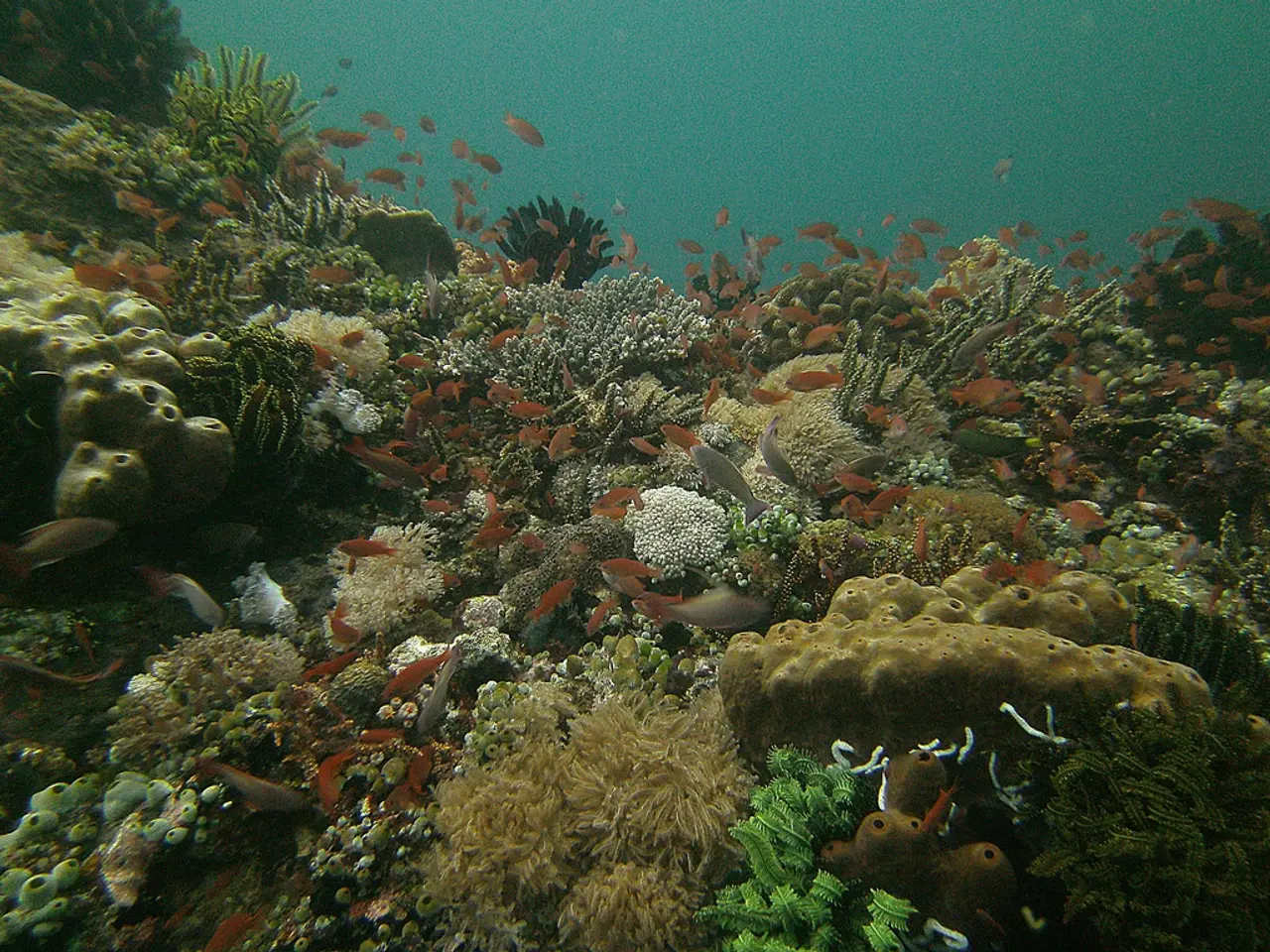Needed increase in blue financing, according to Lagarde, to safeguard oceans
The ocean, a vital force that sustains life and drives the world's economy, has been under significant stress. According to recent reports, it has absorbed over 90% of excess heat and a third of carbon dioxide emitted since the industrial revolution, a fact that underscores its crucial role in climate stability.
In a move to shed light on the pressing issue, the WWF published a briefing in early June, emphasising the need for central bankers and regulators to address systemic exposures to nature-related risks in the ocean. The sustainable ocean economy, if considered a nation, would have a gross value added of $2.5tn, making it the eighth largest economy, according to the environmental group.
The WWF's call to action comes as marine heatwaves are spreading, a trend that research from the University of Reading suggests may be accelerating. Scientists are concerned that the ocean may be reaching a tipping point, with potential catastrophic consequences for marine life and the global economy.
In response, the European Central Bank (ECB) president, Christine Lagarde, has stressed the need for budgeting for resilience rather than reacting after disaster strikes. She has also urged going beyond just reducing emissions and emphasised the need for nature-based solutions such as coral reef restoration.
The ECB president's call for action is echoed by the Taskforce on Nature-related Financial Disclosures (TNFD), which recently released final guidance for fishing, marine transportation, and cruise lines. The TNFD has also launched a consultation on measures and disclosures for ocean and marine-related nature issues, due on 1 October.
Adaptation is key as the world transitions to a more volatile world. Building sea walls and surge barriers are just a few examples of the measures needed to protect marine life and coasts. Christine Lagarde has further emphasised the need for more blue financing to support these efforts.
It is clear that the decline in ocean health due to pollution, land and sea changes, and overexploitation can lead to physical risks and changes in economic activity, creating financial risks. The WWF plans to produce a more extensive guide on recommendations to help central banks assess and manage ocean-related risks.
The urgent need to address these systemic risks related to nature in the oceans, as highlighted by the WWF and the TNFD, cannot be overstated. The future of our planet and its economy depends on it.
This article was last updated on June 17, 2025.
Read also:
- Understanding Hemorrhagic Gastroenteritis: Key Facts
- Stopping Osteoporosis Treatment: Timeline Considerations
- Tobacco industry's suggested changes on a legislative modification are disregarded by health journalists
- Expanded Community Health Involvement by CK Birla Hospitals, Jaipur, Maintained Through Consistent Outreach Programs Across Rajasthan








